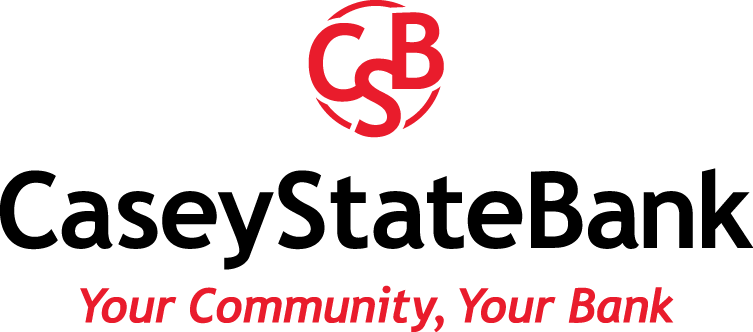Key padlock, wheels, images portraying security
Casey State Bank
Blog
Data Defense 101: What To Do About Private Data Breaches
You’ve probably heard of a data breach, but do you know what that means? A data breach is a cybersecurity concern that can have serious financial repercussions and can even lead to cases of identity theft. At Casey State Bank, we think it’s important to help our community stay safe online, so today we’re going to talk about what these breaches are and what you can do about them.
What Is A Private Data Breach?
Technology has radically changed our world. Today, health records, bank accounts, job applications, grades, taxes, and more are filed digitally. And unlike real-life filing cabinets, digital records can be accessed virtually anywhere and virtually instantly. This has many benefits, like the convenience of online banking–but it also comes with the risk of data breaches. While companies strive for the highest level of cybersecurity, hackers move extremely quickly to crack systems. When hackers attack businesses and steal user data, this is called a private data breach. Usually, these breaches are not targeted at specific user data; rather, hackers try to gather all the information that they can and sort it out later.
Hacking is a problem that’s here to stay; one count found over 130 million fraud attacks during a three month period. And cyberattacks are on the rise. But what does this mean for you, the average consumer? After all, it’s not like private data breaches are targeted at you. Instead, they’re targeted at the companies and organizations that collect your data.
How To Protect Your Identity From Private Data Breaches
While there are many cybersecurity risks, like ransomware and malware, that rely on you being tricked into clicking a dangerous link, protecting yourself from data breaches is primarily about awareness. In one major case, the consumer credit reporting bureau Equifax was hacked, exposing the data of almost 148 million people– a little less than half of all Americans. If you hear about a private data breach, look into it. Companies in all 50 states are obligated to tell you if your data was stolen in a data breach, so be sure to pay attention when you receive notification.
Another important security measure is to think about what comes next. Most data breaches collect information like email addresses and phone numbers. But what do they do with that information? That’s where social engineering attacks come into play. In a social engineering attack, hackers will try to trick you into revealing personal information that they can then use to access your accounts or attack your identity.
This might be through ransomware, where you accidentally download a hidden, malicious program. Or it might be through phishing, a scam where hackers send you something that looks like a legitimate email in order to get you to reveal personal information, such as passwords and credit card numbers.
Protecting yourself with measures like strong passwords and multifactor authorization (MFA) is also a way to avoid some of the big risks of data breaches. Many financial institutions have adopted this because while hackers might get your name, your password, and your email address, MFA involves entering information on multiple devices– and hackers can’t steal those.
Protecting Yourself Online With Casey State Bank
As a community bank, Casey State Bank wants to protect you, our neighbors and customers. Everything is online today, and there’s no going back– the digital genie is out of the bottle. But we do have ways to help keep you safe. Casey State Bank offers our customers ID TheftSmart enrollment, a continuous credit monitoring system that will alert you to any potential problems or suspicious activity. We also have great information about SAFE Security topics at our Casey State Bank Learning Center. Stop by today to learn more about online security!


